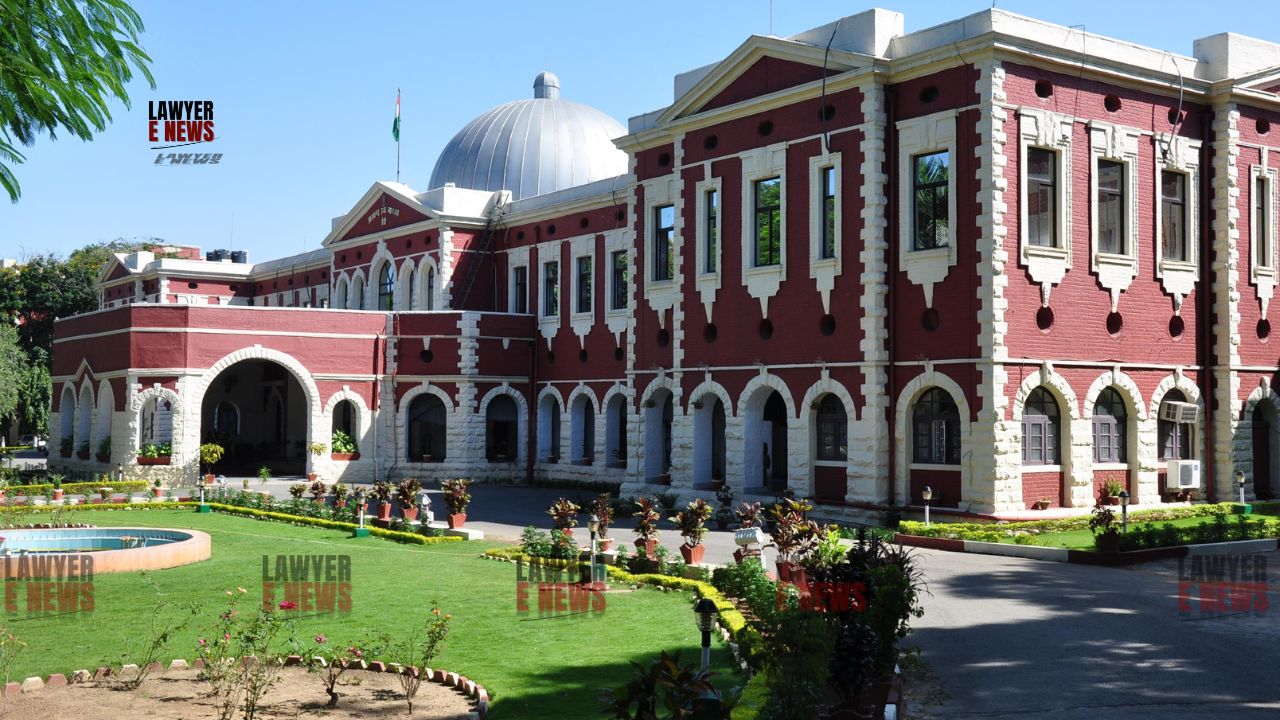-
by Admin
15 February 2026 5:35 AM



Jharkhand High Court, led by Acting Chief Justice Sujit Narayan Prasad, delivered a critical judgment in Jyoti Tiwary v. Subhash Kumar Singh (CMP No. 533 of 2024). The court quashed an order from the Additional Family Court-II, Ranchi, which had rejected the petitioner’s application under Order 7 Rule 11 CPC, challenging the court’s jurisdiction in a guardianship case. The court held that the minor's "ordinary residence" was admitted to be in Delhi, thus placing jurisdiction with the Delhi courts.
The dispute arose between Jyoti Tiwary (petitioner) and her husband, Subhash Kumar Singh (respondent), over the guardianship of their minor son, Aayan Pratap Singh. After a breakdown in the marriage, the petitioner, residing in Delhi with their child, challenged a suit filed by the respondent in the Ranchi Family Court seeking custody of the minor. The petitioner argued that the Ranchi court lacked jurisdiction under Section 9 of the Guardians and Wards Act, 1890, as the minor’s ordinary residence was in Delhi, a fact admitted by the respondent in previous legal proceedings in Delhi.
The respondent had previously filed a guardianship petition in a Delhi court, which he withdrew after admitting that the minor resided in Shahdara, Delhi. Despite this, the respondent initiated a fresh suit in Ranchi, which led the petitioner to file an application under Order 7 Rule 11 CPC, seeking rejection of the suit for lack of jurisdiction. The Ranchi Family Court dismissed the application, stating that the issue of jurisdiction involved "mixed questions of law and fact" to be determined after trial.
The key legal issue was whether the Family Court in Ranchi had jurisdiction to hear the guardianship case. Section 9(1) of the Guardians and Wards Act, 1890, mandates that jurisdiction lies where the minor "ordinarily resides." The petitioner contended that since the minor resided in Delhi, only the courts in Delhi had jurisdiction. The respondent argued that his ancestral home in Ranchi gave the Ranchi court jurisdiction.
The court found that the respondent had admitted in previous legal proceedings in Delhi that the minor’s ordinary residence was Shahdara, Delhi. This admission negated the need for an inquiry into facts, and the court held that the trial court had erred in dismissing the Order 7 Rule 11 CPC application.
The Jharkhand High Court meticulously examined Section 9 of the Guardians and Wards Act, emphasizing the clear distinction between guardianship of a minor’s person (Section 9(1)) and property (Section 9(2)). Justice Sujit Narayan Prasad observed that the Family Court in Ranchi had misapplied the law by conflating the two provisions. The court noted that since the petition concerned the guardianship of the person, jurisdiction must be determined by where the minor "ordinarily resides."
Citing the Ruchi Majoo v. Sanjeev Majoo judgment (2011) and other precedents, the court clarified that when the ordinary residence of a minor is an admitted fact, no further inquiry is necessary. In this case, the respondent had already admitted that the minor resided in Delhi, thereby binding himself to that jurisdiction. The court rejected the Ranchi Family Court’s view that jurisdiction was a mixed question of law and fact, ruling that such an inquiry was unnecessary given the admissions on record.
The High Court also highlighted its supervisory jurisdiction under Article 227 of the Constitution, noting that it had the authority to correct gross jurisdictional errors made by lower courts. The court held that the trial court’s refusal to consider the admitted facts amounted to an error apparent on the face of the record.
The Jharkhand High Court quashed the Ranchi Family Court’s order and allowed the petitioner’s application under Order 7 Rule 11 CPC, holding that the Ranchi court lacked jurisdiction. The respondent was granted liberty to file a fresh petition in a court having proper jurisdiction, namely, the Delhi courts where the minor resided. The decision reaffirmed the importance of adhering to the Guardians and Wards Act’s provisions on jurisdiction in cases involving minors.
Date of Decision: September 20, 2024
Jyoti Tiwary v. Subhash Kumar Singh
